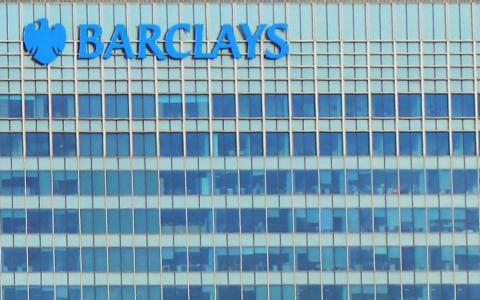
(Bloomberg) - Some of America’s biggest businesses may lose their coveted investment-grade ratings, flooding US junk-bond markets with as much as $60 billion of debt after soaring inflation has driven up many companies’ operating costs.
Barclays Plc expects between $40 billion to $60 billion worth of ‘fallen angels’ in 2025, industry parlance for companies that have lost their investment-grade ratings. It would be the highest level in nearly a decade, excluding 2020 when the Covid-19 pandemic broke out.
In the coming months, household names like Boeing Co., Paramount Global, Warner Bros. Discovery Inc. and Charter Communications Inc. are at risk of being downgraded, according to Barclays. Boeing got some relief after a machinists’ union agreed this week to end a strike, and after it raised more than $20 billion in equity markets last month.
“It’s kind of this slow-moving car wreck,” said Hunter Hayes, chief investment officer at Intrepid Capital Management Inc. “Obviously, some of these bigger, on-the-cusp, IG names have had some issues — Boeing being the poster child. But there are a handful of them, and what’s interesting about it to us is just the size.”
Boeing, Paramount and Charter declined to comment, while Warner Bros. didn’t reply to requests for comment.
There have been $6 billion of fallen angels this year — the lowest since 1997, according to Barclays. Next year could be the first since 2021 where fallen angels outpace ‘rising stars’ — firms elevated to investment-grade, according to the bank. While the Federal Reserve cut rates in September, that came after a tightening campaign that started in 2022 that was the most aggressive in decades.
Investors are turning their attention to a few high-profile investment-grade issuers that may get downgraded to junk, namely Boeing, Paramount, Warner Bros. and Charter, Barclays notes. The four make up just 2% of the US investment-grade index, according to the bank. But in junk-bond land, their debt would take up a sizable 11%, analysts led by Dominique Toublan wrote on Oct. 25.
“It’ll be an interesting litmus test to see how well high-yield can absorb that,” said Hayes. “But I think it’s healthier this way than to have a waterfall of these IG guys falling in all of a sudden, on the back of a deep, dark recession. It’s healthy, but it’s also a little scary for high-yield.”
If cut to junk, Boeing would be the biggest ever US corporate to be stripped of its investment-grade status. S&P Global Ratings believes the market could likely absorb the planemaker’s $53 billion debt load, as it’s absorbed larger one-day additions before, like in 2005 when Ford Motor Co. and General Motors were downgraded on the same day.
“The biggest impact for us is more of a secondary one,” said Hayes. “It creates secondary opportunities because a lot of folks are going to have to sell existing exposures to buy this stuff to absorb it. We view that as the opportunity.”
As for Paramount, S&P cut the storied Hollywood film studio to junk in March and in July Moody’s Ratings said it’s also considering a downgrade, while Fitch Ratings has a negative outlook. In July, Paramount agreed to sell itself to Skydance Media in a deal that’s expected to bolster its balance sheet. Meanwhile Warner Bros., which has low BBB ratings at all three credit graders, has more runway than Paramount, according to Barclays. In August, S&P revised its outlook to negative on Warner Bros., citing continued revenue and cash flow declines in its linear TV operations.
Charter, the largest US cable-TV provider, is the least likely of the four to fall to junk, the Barclays analysts say. Two of its BBB ratings are on stable outlook — with Moody’s on negative outlook — and the firm also recently moderated its leverage target, according to the bank.
“When I talk to investors, everybody has a view on these large-cap structures that are at risk because it’s where you’re going to make a difference,” said Toublan. Hanging on to a company that is at risk of getting cut to junk, but doesn’t, can help investors earn higher yields, he explained.
Some market watchers, like Bill Zox, a portfolio manager at Brandywine Global Investment Management, think the high-yield market will absorb any fallen angels just fine thanks to strong investor demand for corporate bonds. Zox expects Boeing, Paramount, Warner Bros. and Charter to take advantage of wide open capital markets to maintain their high-grade statuses, reducing next year’s volume of fallen angels.
To be sure, the overall strength of the US economy could lift issuer fundamentals and limit downgrades, Barclays notes. Rising inflation has also helped boost prices for some companies more than their costs. But the sheer volume of BBB- paper on negative watch — about $151 billion — gives Barclays reason to believe there’s a longer “tail” on possible 2025 fallen angel volumes.
“Even though it’s priced in, I don’t think it’s been fully absorbed by any means,” said Hayes. “If it’s $40 to $60 billion, that’s going to be a huge risk transfer. It’ll be interesting: they’ll create a lot of shock waves and I think that most of that will be opportunity for us as high-yield guys. This next year is going to be volatile.”
By Caleb Mutua



